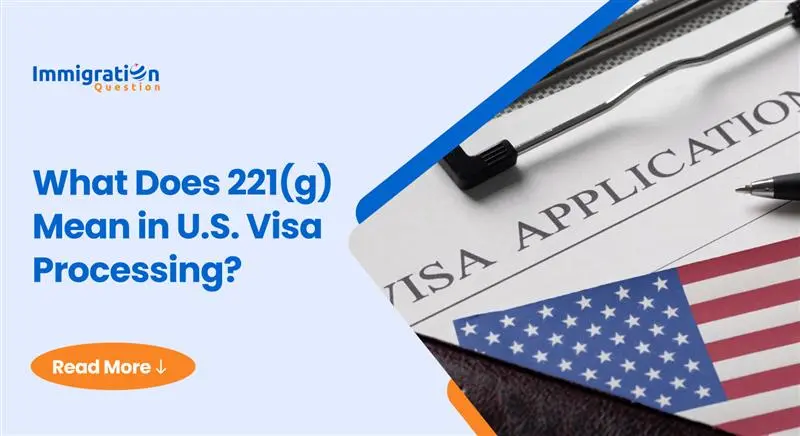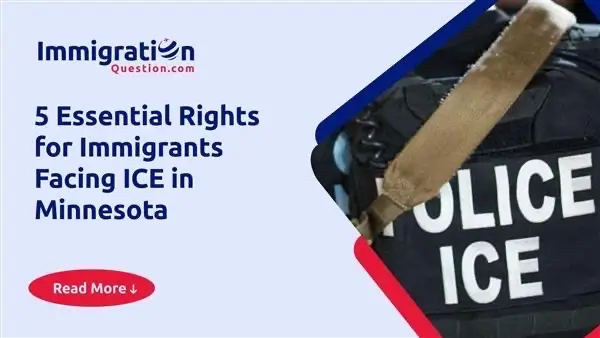“221(g)” refers to a specific section of the Immigration and Nationality Act (INA) — precisely Section 221(g). When you apply for a U.S. visa at a U.S. consulate or embassy and receive a 221(g) notice, it means your visa application has been temporarily refused because the consulate needs more information or further administrative processing before making a final decision.
Q: Why Do People Get a 221(g)?
When you apply for a U.S. visa and the consular officer isn’t ready to make a final decision, you might receive a 221(g) notice. This simply means your application is on hold—either because something is missing or additional review is required. It’s a common procedural step, not an outright denial.
In simpler terms:
221(g) = “We can’t approve your visa yet. We need more from you or more time.”
It is NOT a permanent denial. It’s a pause on your application.
Q: What are the Common Reasons for a 221(g) Notice?
Here are some typical reasons why someone might get a 221(g):
Missing Documentation
- You didn’t provide all the required documents.
- The officer needs additional evidence, like:
- Proof of employment.
- Financial records.
- Proof of qualifications (like diplomas or licenses). Administrative Processing
- Your application needs additional security checks or background verification.
- This happens often for people in sensitive fields like:
- Information technology.
- Engineering.
- Biotechnology.
- Research roles.
- Extra checks may be triggered if your name is a “match” with names on watch lists. Employer or Job Verification (for work visas)
- The consulate may need to verify if your employer exists.
- They might want to confirm if the job offer is genuine. Security Clearance or Additional Investigation
- Some applicants need extra checks related to national security.
- This could relate to your work, travel history, background, or country of origin.
Q: What Happens After You Receive 221(g)?
After getting a 221(g) notice, two possible paths:
Path 1: Submit Additional Documents
- If the consulate asked you for more documents:
- Submit the requested documents as quickly as possible according to their instructions (by email, uploading online, or dropping them off at a visa center).
- After receiving the documents, the consular officer will resume reviewing your application.
Path 2: Wait for Administrative Processing
- If they didn’t ask you for any documents but mentioned “administrative processing”:
- You have to wait until the consulate completes its checks.
- The embassy/consulate will contact you when a decision is made.
- You don’t usually need to take any action unless they request it.
Q: How Long Does 221(g) Processing Take?
The time frame varies widely:
- Some cases are resolved in a few days or weeks.
- Others can take several months (sometimes 6 months or more).
- In very rare cases, it can take over a year.
There’s no fixed timeline because it depends on:
- The complexity of the checks needed.
- How quickly do you submit the requested documents?
- Whether third-party agencies (like security or background checks) are involved.
Important:
If your case is stuck for a long time, you (or your attorney) can sometimes follow up with the consulate or request updates.
Q: How Will You Know the Result?
After administrative processing finishes, the consulate will either:
- Approve your visa and tell you to submit your passport (if they had previously kept your passport, they’ll stamp the visa).
- Deny your visa if they determine you don’t qualify based on new information.
Q: Is 221(g) a Visa Refusal or Denial?
Technically, under U.S. immigration law, a visa refused under 221(g) is a refusal, but it’s not final. Your visa can still be approved if you satisfy the consulate’s requests.
The visa will be finally denied if you fail to provide the necessary documents or if administrative processing results in negative findings.
Q: How Serious is a 221(g)?
- It’s not usually a serious issue if it’s just about missing documents.
- It could be more serious if administrative checks reveal security concerns or issues with your employer/job.
- Most people who get 221(g) for documentation reasons eventually get their visa after providing what’s needed.
Q: Can I travel to the U.S. while my visa is under 221(g) administrative processing?
No, you generally cannot travel to the U.S. while your visa application is under 221(g) processing, because:
- Visa Not Yet Issued:
221(g) means your visa is temporarily refused, so you don’t have valid travel authorization. - Pending Clearance:
Travel is not allowed until administrative checks or document reviews are complete and your visa is formally approved. - No Exceptions for Urgent Travel:
Even if your travel is urgent (e.g., business or family emergency), consulates rarely expedite 221(g) cases unless it involves extreme circumstances. - Previously Held Visas May Be Affected:
If 221(g) was issued during renewal, your older visa may have been canceled, making travel impossible. - What You Can Do:
- Wait for the consulate’s decision.
- Monitor your application status online.
- Respond quickly to document requests to avoid delays.
Travel is only possible once your visa is officially approved and stamped.
Q: What Are Some Key Tips to Handle 221(g)
- Act quickly: If they request documents, submit them quickly.
- Stay calm: 221(g) is standard and doesn’t necessarily mean denial.
- Follow instructions carefully: Each consulate has specific procedures.
- Keep copies: Always retain copies of everything you submit.
- Stay updated: Some embassies let you track your case status online.
Conclusion
In short, 221(g) is a temporary refusal of your U.S. visa application pending additional information or administrative processing. It’s not a final denial unless the follow-up steps fail.
If you receive a 221(g), focus on:
- Understanding exactly what’s being requested.
- Responding promptly and completely.
- Being patient, especially during security-related administrative processing.
With careful attention and patience, many 221(g) cases end successfully with visa approval.
Immigration Question is the easy way for people to ask immigration questions. Ask your immigration question in any language when you ask on immigration question and get responses from immigration attorney’s specializing in your area of interest.











